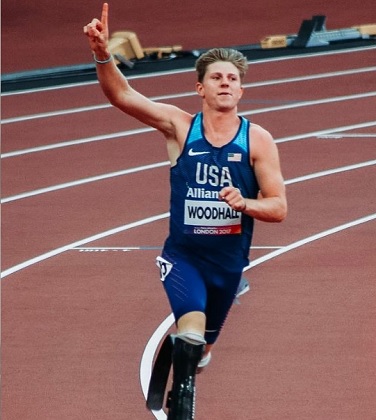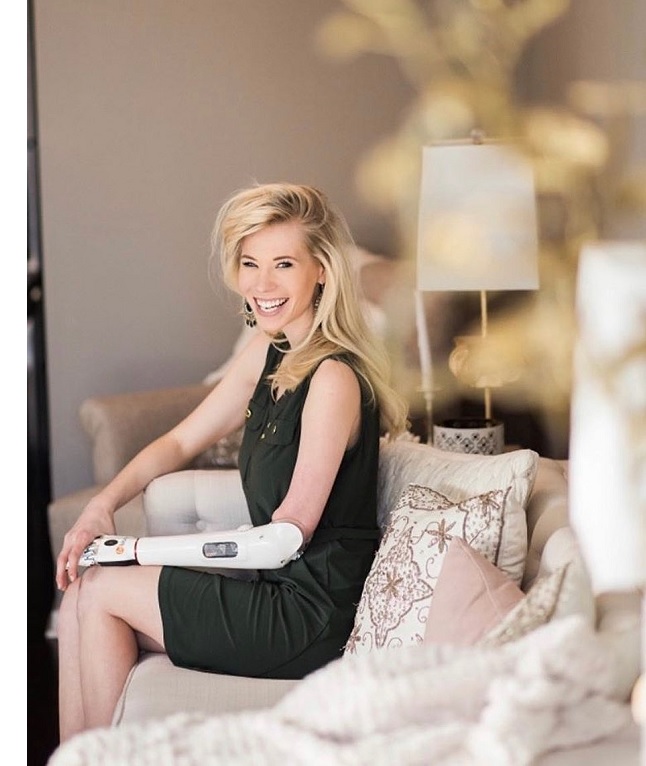
In Amplitude‘s current issue, we featured six young amputees who are making an impact as agents of change. But we could just as easily have featured 6,000 (or more) if we’d had enough pages. One of the many young leaders we didn’t have space to include is Nicole Kelly, a congenital below-elbow amputee who first came to prominence as Miss Iowa in 2013. She’s remained in the public eye ever since as a public speaker, co-host of the “Disarming Disability” podcast, ambassador for Coapt, advisor for the National Disability Theatre, and opinion-maker on the subject of disability.
In all these roles, Kelly has used her platform to promote a forceful message that boils down to this: Be proud. “Having a disability and expressing your disability identity should never bring you shame or embarrassment,” she wrote last year during observances around the 30th anniversary of the Americans With Disabilities Act. “You should never hesitate to feel worthy enough to ask for—and use—any accommodation you need.”
Season 3 of Disarming Disability is currently in the works, with the first episode slated to drop on May 5 (and new ones every Wednesday thereafter). As a new feature this year, the podcast’s website will be sharing online profiles of disability advocates from around the globe, and the producers are actively seeking candidates. If you have a story to share, fill out this form and let them know how you’re working to make life better for people with disabilities.
We talked with Kelly way back in January (!), just after she’d joined Coapt as a full-time operations staffer. You can learn more at her website and her Facebook page. Our conversation is edited for length and clarity.
We have this hypothesis that your generation has a distinct sensibility or set of values—that the existence of the ADA, advanced prosthetics, and digital media tools have given you a greater sense of possibility and empowerment than previous generations of amputees. Are we just imagining that?
I am the prime example of what you’re talking about. I was 57 days old when they signed the ADA. I don’t know a world without the ADA, and I really came of adult age when people were still kind of proudly finding each other on social media and really kind of growing into their identity of the Internet, which I think has been a very unique transition of something that’s happened in the past 10 or 15 years.
It’s interesting how you phrased that—people “proudly” finding each other and “proudly” growing into their identities as amputees. Talk to me a little more about that.
One of my favorite mentors said to me, “If you look at other marginalized communities, they all have something in common: geography.” Like I live on this street, and on Sunday I go to church with other people who live on this street, and we organize and become very closely knit together because of geography. There’s a culture we create because we live next to each other.
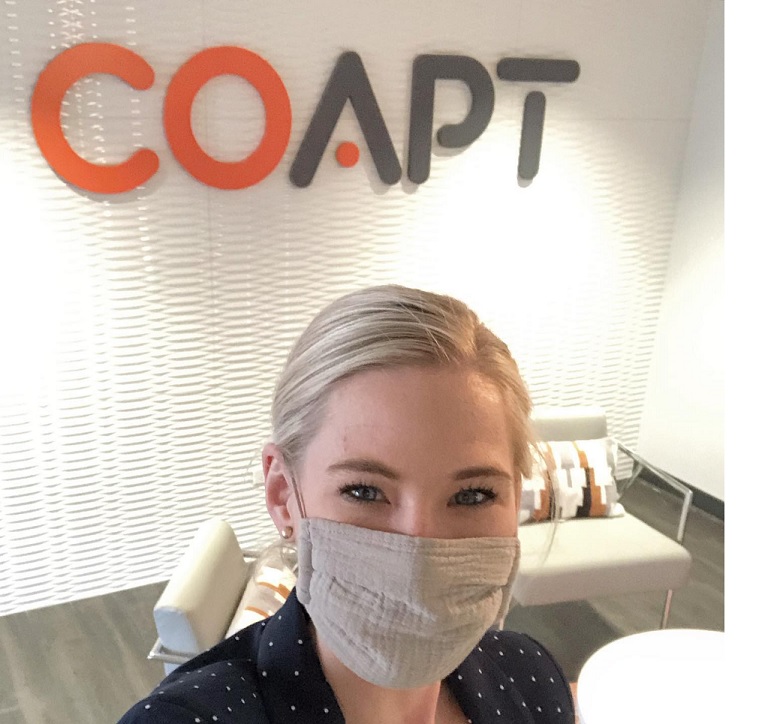
That is not an advantage that people with limb difference have had. Until the Internet existed, we didn’t have a space to congregate. There’s no church for us to go to on Sunday. There’s been nowhere for us to learn that it’s okay to be proud of our identity. We didn’t have mentors growing up. When I was growing up, I saw nobody who looks like me. And so now, with the age of social media—as absolutely terrible as social media can be sometimes, I take it seriously because it allows me to get messaging to the younger “me”s. Like, what do I wish I knew as a 14-year-old girl? That’s what I’m trying to communicate now, because now [young amputees] have direct access to people who are older than them and people who have had the space to do the homework, read the books, meet the mentors, and really understand this identity and to be proud of it.
Since you didn’t have these online connections when you were growing up, how did you gain the sense of identity as an amputee and develop pride in it?
Once I moved to Chicago, I really started to plug into the disability community. I got hooked into Access Living, which is a big disability organization here. And then I took a class called ADA25, and the entire goal of it is to create networks with people who identify as having a disability and seat those people on boards [of civic organizations] across Chicago. So the idea is to put people with disabilities in positions of leadership and quite literally put us at the table so we can help influence the culture. That was incredibly empowering, and it helped me understand that you can be proud of that identity and step into that.
Within my peer group, we earnestly feel a responsibility to disseminate the information we wish we had gotten when we were young, because we had to search way too hard for it. It just took so much time and energy, and it shouldn’t be that hard. And the other piece of it with my peer group—and I might get myself in trouble here, but I’ll say it anyway—we feel a very specific responsibility to take back leadership away from parents and healthcare workers. We want to be the leaders, and we don’t want parents being the access gate into our world.
Right now the organizations that exist [for kids with disabilities], grassroots-wise and community-wise, are all run by parents. And the parents are using rhetoric that we don’t always agree with. Like, many of the parents will still never in a million years say the word “disability.” And that couldn’t be further from what my peers want to teach the next generation. Couldn’t be further from it.
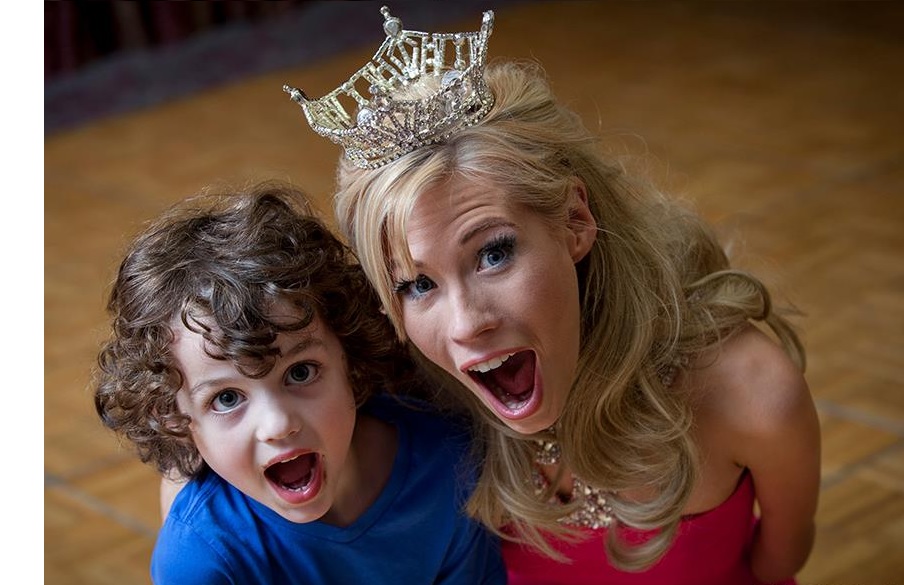
From your perspective, what is it about that word that parents are afraid of? And what is it that you’re embracing?
Disability has a huge, huge stigma attached to it. The idea is that when you say “disability,” it means complete inability. That’s what I was taught growing up—which is what we now call ableist, right? But in fact, that is not at all what disability means. I did not understand my experience until I met with mentors who could say, “Here’s a term you should know: ‘disability microaggressions.’ Here are some different microaggressions you’ve probably experienced in your life.” And I was like, “Where were you when I was 10, 11, 12 years old? All these things you’re telling me are things I have experienced that my parents never spoke to or taught me the language [to understand]. You are speaking literally the language of my soul.”
I was taught that I should never be associated with the word “disability,” and that it was evil and bad. And my generation is really trying to get rid of that stigma and instill pride. This is an identity we can claim. And in fact, our lives make a lot more sense if we can claim it and understand it. I definitely feel that is a huge marker as far as my own generation.
What about your peers who are able-bodied? Do you feel most people of your generation have a different understanding of disability compared to most people of my generation?
I totally think so, and I think it’s for the exact same reason. My able-bodied peers—whether they’re literally talking to me or they’re following me on social media and seeing the rhetoric that I use—it clicks for them. When you say, “Disability is a marginalized community,” it reflects that understanding they’ve already gained about other marginalized communities—people of color, LGBTQ+. So I think it does make it easier to explain to my generation, because I think they’re more open to the idea that social structures actually exist and that there are people who do live with various kinds of oppression. We’re definitely more open to that.
But I still feel like the disability community gets left off of lots of diversity lists, which drives me nuts. They’ll talk about all these different kinds of diversity and inclusion, but they’ll leave disability out. So I definitely think we’re kind of still last on the list.
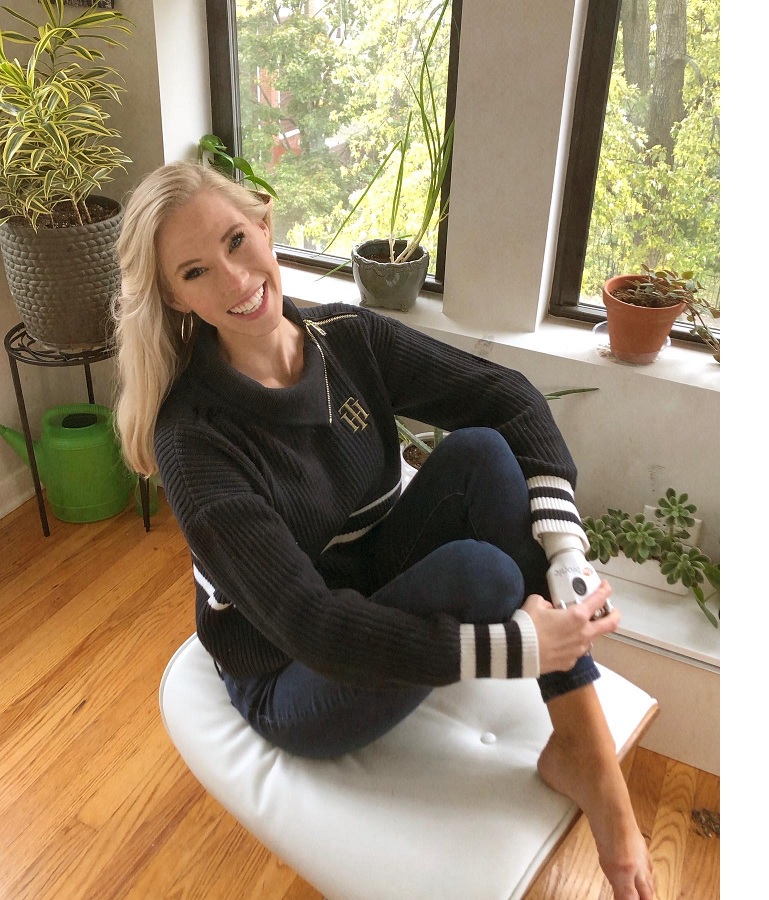
Where do you think your generation can make progress and move those understandings forward? Like, what’s the next big step that you’d like to see?
I can talk about this question for hours. The reason I went back to journalism school [Kelly holds a masters from Northwestern] was because news in general talks about disabilities incorrectly 100 percent of the time. Well, I shouldn’t say 100 percent of the time, but it feels like it 100 percent of the time. When I talk about microaggressions, this is part of how they come out. Every kid who looks like me, who plays any kind of high school sport in a small rural town, they have their face on the front page of the newspaper saying, “Inspiring kid playing basketball.” And that conversation is actually so incredibly hurtful. It’s not actually educating anyone about disability. It’s really leaving us out of the conversation. We are talked about by people who don’t understand our experience, and it really “others” us and makes people feel sorry for us—which then, of course, just continues the stigma we face when we go out in the world. It’s just perpetuating the problem.
I understand, especially in the amputee world, that there are many people who perhaps have lost something and their journey might be inspiring. But the part of that journey that isn’t talked about enough is: How do we make the world more accessible? Let’s talk about where the ramps are so they can get into your building.
We need to get journalists and storytellers to understand the experience. We need to shift what the conversation is. The biggest reason why these stories continue to be told wrong in Hollywood and in the media is the fact that we’re not given a seat at the table. It really is that simple. We need to educate our storytellers.
Are there any publications out there who are practicing the kind of storytelling you’d like to see?
You know who does this really well? Teen Vogue. Teen Vogue does awesome—
No way. Really?
Would you believe it? They do amazing disability stories.
OK, well—why not them?
Right? They’re real hip. First of all, they’re publishing stories about disability. They’re seeking them out. So they’re actually telling the story—we’re not being ignored, which is actually the number-one problem. And then when they are telling the story, they’re telling it from that kind of inclusive space. I don’t know if there’s one disability writer on staff who’s really plugged in or whether they consult with various people; I’m not totally sure what the inner workings are. But they are very regularly publishing really good stuff.
And then another thing as far as framing voices goes—and I touched on this earlier—social media has been good, because for the first time we are getting to tell our own stories.
Where else do you feel like your generation is poised to bring about change and maybe build on the progress that the ADA helped achieve?
Diversity really is becoming a hot topic in a lot of the big corporations here in Chicago. They’re specifically building out departments that are focused on diversity, which in theory should mean disability, too. They are kind of waking up to the fact that there are people and dollar amounts that they’re leaving on the table unless they’re inviting everybody in. So I think that is being talked about in a way that is good.
I think that also our generation really wants to be politically active. You know, the ADA is wonderful and it’s great, but it has not fulfilled its promise. There are still a huge number of people with disabilities who are unemployed and who don’t have fair access to housing. People being stuck in nursing homes is a huge problem that we have right now. With people having access to work from home, that actually a very positive thing that will come out of the pandemic, because that makes work much more easily accessible for people who have disabilities. But I also hope and think that our generation will start really pushing corporations and pushing the the government to make sure that the ADA is actually is fulfilled. The work has been done on paper, but how do we actually transform that into fulfilling its promise?


